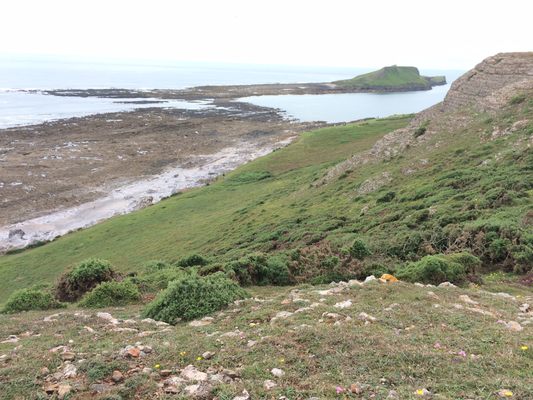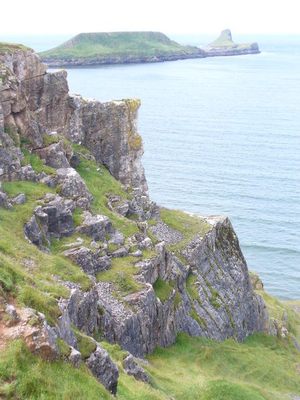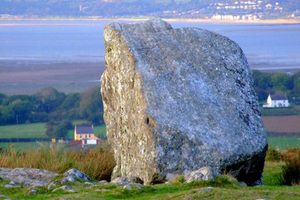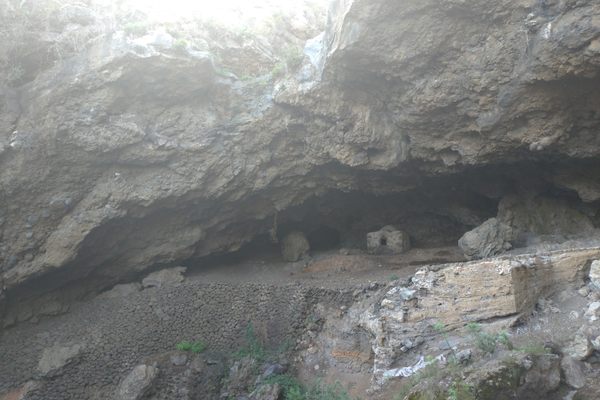About
"I stayed on that Worm from dusk to midnight, sitting on that top grass, frightened to go further in because of the rats and because of things I am ashamed to be frightened of. Then the tips of the reef began to poke out of the water and, perilously, I climbed along them to the shore."
-Dylan Thomas
Given the name "Wurm" (Dragon) centuries ago by Vikings for its snaking serpentine profile, the tidal island now known as Worm's Head has inspired visitors since antiquity, and once trapped a terrified young Dylan Thomas.
Connected to the mainland by a 700 yard (650 meters) causeway which slips beneath the waves at high tides, Worm's Head holds many natural wonders for the adventurous explorer including natural caves and blowholes, but the crowning glory is the spectacular, jagged Devil's Bridge which connects the Inner Head to the Low Neck.
On the outermost outcrop, a nearly inaccessible cave fascinated Henry VIII's official antiquarian, who wrote of tales of hidden passageways and secret doors to be found deep within the island. Excavations in the modern era have long since disproved that romantic fantasy, but did uncover a minor treasure trove of bones and ancient stone tools.
The Worm's Head is now protected as a National Nature Reserve by the National Trust and the Countryside Council for Wales. It is home to huge colonies of nesting seabirds, which can affect the accessibility for human visitors during the spring and summer months.
Related Tags
Know Before You Go
Check in at the National Trust Information Centre and shop for instructions and tidal information before heading out to Worm's Head
Community Contributors
Added By
Published
May 14, 2013
Sources
- http://www.explore-gower.co.uk/explore/gower-landmarks/gower-geology/worm-s-head
- http://en.wikipedia.org/wiki/Rhossili
- http://www.telegraph.co.uk/travel/destinations/europe/uk/wales/722587/South-Wales-Walking-along-the-Gower-Peninsula.html
- http://www.bbc.co.uk/wales/nature/sites/walking/pages/sw_weatherman_wormshead.shtml
- https://www.google.com.au/maps/place/Worms+Head/@51.5602054,-4.3144915,2088m/data=!3m1!1e3!4m5!3m4!1s0x486ebfd480cd2017:0xaa2ec41dbd209a0b!8m2!3d51.5642324!4d-4.3200828?hl=en






































